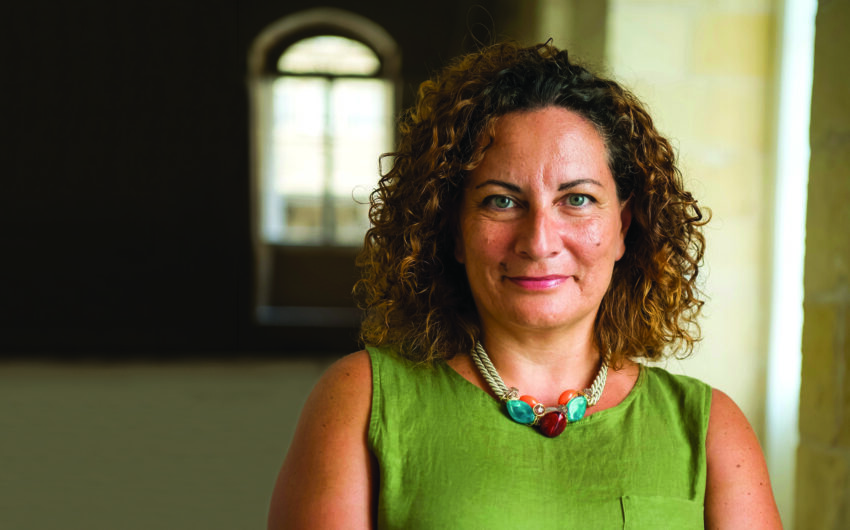
A United Nations policy brief published earlier on in the pandemic warned that the COVID-19 crisis was not simply a physical health crisis but had the potential to become a major mental health crisis too if action to safeguard the mental and emotional well-being of people was not taken (UN, May 2020, p.2).
One year later, local and international research is proving this forecast true. The mental health and well-being of many people have been impacted to different degrees by this crisis. And mental health professionals are calling for action to be taken in order for this to be addressed urgently and as a major priority.
This pandemic has been and continues to be a particularly challenging and stressful time for care home and supported housing staff. All staff, including care staff, domestic staff, nurses and managers in residential care homes, have been affected (SCIE nd). Care home residents are especially at risk of COVID-19 because of their age, co-morbidities, prevalent frailty, cognitive impairment and functional dependency (Gordon et al, 2020). Residents are also rendered more vulnerable by virtue of frequent close and personal contact with other residents, and carers who attend to their needs.
The spread of COVID-19 hit residential homes for the elderly in Malta – from privately owned to state-run facilities. The Superintendent of Public Health, Prof. Charmaine Gauci, in her update on September 25, 2020, stated that “a quarter of Malta’s COVID-19 deaths have been among residents in homes for the elderly” (Times of Malta, 2020).
Malta had managed to safeguard the elderly in residential facilities during the first wave of infection, between March and July 2020. CareMalta itself had introduced lockdowns in their facilities, where staff locked themselves in with the residents for 10 weeks at a stretch. This took a lot of courage and personal sacrifice on the part of the professional workers who participated.
However, during the second wave over the summer of 2020, the number of cases in residential homes around the island was rising steadily. This trend repeated itself in the third wave that happened between January and March 2021, where the numbers of cases in Malta were rising exponentially notwithstanding the roll-out of a vaccination programme.
Compassion fatigue and burnout
Working in such difficult situations is always fraught with consequences, including psycho-emotional fatigue or, as we also know it, compassion fatigue. This may bring about many negative emotional states – a normal process where one would experience feelings of fear, anxiety and depression, or even a sense of helplessness, when working under such stress and pressure. All these feelings are not signs of weakness or evidence that you are not capable of handling your work. Rather, they are signs that you care so much and are trying your best to keep things going – in your personal, as well as your professional life.
What to do to safeguard your well-being and to develop resilience
Well-being and self-care might sound like modern psychological buzzwords. They are so much more than that. Safeguarding your well-being and mental health, taking action to prevent or reverse burnout and acknowledging your need to be helped are no longer optional extras, but rather what will make you survive this battle and thrive healthily once we are out of it.
- Try to bring some stability into your life – find opportunities to rest, take breaks from work, disconnect from your phone and laptop, get enough sleep, eat normally and healthily, keep in touch with your loved ones.
- Find time for exercise, stretching, swimming or walking. Make time for yourself.
- Avoid unhealthy ways of coping with fatigue and tension, such as increased smoking, alcohol consumption or abuse of substances – these can compromise your mental and physical health in the long run.
- Remember what helped you cope in previous situations of stress in your life and what helped you improve your emotional state, and return to those practices – these could be simple things like reading, taking up a hobby, spending time in the countryside or by the sea, doing a craft, talking to someone you trust, seeking professional help.
- Remember that you are not alone – your colleagues are going through similar experiences, so reach out to each other and be of support to one another.
- Take up offers by your company to participate in any support programmes or training that it offers you.
- Try to remember that your residents are also worried, afraid, exhausted and feeling similar emotions to yours, so continue showing understanding and draw on the compassion satisfaction that your work offers you.
- Speak to your superiors and seek professional help if you are feeling burnt out.
- Think positively – be proud of how you are dealing with your responsibilities and remember what a difference you are making in your residents’ lives.
- Be hopeful – this too will pass. And the more equipped you are to go through this battle safely, the stronger a person you will become by the end.
References
- Gordon AL, Goodman C, Achterberg W, Barker RO, Burns E, Hanratty B, et al. Commentary: COVID in care homes – challenges and dilemmas in healthcare delivery. Age Ageing. 2020;49(5):701–5.
- Social Care Institute for Excellence (nd). Care Homes and COVID-19: Advice and Best Practice. Available at: https://www.scie.org.uk/
care-providers/coronavirus-covid-19 - Times of Malta (25/09/2020). Quarter of all COVID-19 deaths in elderly homes, Gauci reveals. Available at: https://timesofmalta.com/
articles/view/watch-live-covid-19-update-amid-sharp-rise-in-death-toll.820210 - United Nations (May, 2020) Policy Brief: COVID-19 and the Need for Action on Mental Health. Available at: https://unsdg.un.org/resources/policy-brief-covid-19-and-need-action-mental-health
